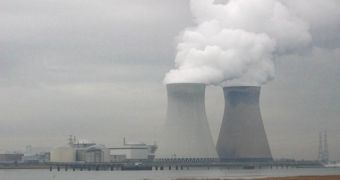The Fukushima disaster made several governments reconsider their position towards the development of nuclear power. Belgium could be one more nation added to the list of those countries which are willing to abandon the benefits of this alternative source of energy, in favor of the environment and the wellbeing of its people.
Yesterday, officials from the Belgian administration have declared that the country will shut down the two remaining nuclear power plants if researchers and companies on the market will be able to provide safer, and more efficient sources of renewable energy.
Such a decision would represent a dead end for the Electrabel company, part of GDF-Suez, the enterprise which presently operates the two nuclear facilities, one located in Doel and the other one in Tihange, which both give Belgium power coming from seven reactors.
So far, regulations adopted in 2003 state that three of the oldest reactors should stop functioning, but by the end of 2015, the legal framework might expand to the remaining four, if experts from the energetic industry will be able to point to other options which will be able to replace the 5,860MW of capacity which officials consider giving up to.
The administration will look for appropriate solutions to be able to respond effectively to the energy demand. Also, the government has already started looking for potential investors which might expand this field of activity.
It is likely that this initiative was inspired from Germany's decision to stop all its nuclear activity by 2022. Switzerland has also considered giving up this risky path of obtaining energy and the nation has set 2034 as a deadline for turning green and risk-free.
The Italian government has to take this matter into its own hands also, as the public opinion manifested its urge to stop nuclear power exploitation at a national scale, in a plebiscite which took into consideration people from every part of the country.
On the other hand, the UK authorities see no proper reason to stop obtaining profit while exploiting nuclear power, after all the country's reactors turned out to function perfectly, after an investigation that questioned their safety.

 14 DAY TRIAL //
14 DAY TRIAL //